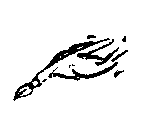You cannot know that, unless you know someone who can recommend a good agency or a good translator. Of course there are many excellent service providers who work with qualified translators who are trained in one or more languages. But there are also many excellent translators who have effectively earned their place in actual practice. In principle, everyone can act as a qualified translator. That also makes the profession rather dynamic and provocative. Memberships of trade organisations may imply a certain quality, but does not prevent there being quite a few unscrupulous operators among them. The best way to find a good provider is to check for which customers he or she works or has worked, or by word of mouth.
Yes, most translators preferably work on screen. By providing a text in digital form, the translator can place the source and target documents in two programme windows adjacent to each other. This increases productivity. Moreover, this enables the use of a translation tool. Don’t ever think that this programme does any translation, it merely supports the translator to ensure an internal consistency, in other words, whether the same terminology is still being used. So, how a document is made available is indeed of influence on the translation quality.
A professional translator with experience in the field translates about 2500 words per day. Of course this depends on the type of text. A catchy advertising text usually requires more time per word than a typical manual. Besides, for large volumes of texts sometimes far more than 2500 words per day can be achieved by using multiple translators to work on one job. Naturally, a good final editing and consistent use of terminology are of vital importance.
That can happen in different ways. In some countries the price is determined per line or per page. In the Netherlands it is typical to charge a price per word. Surcharges or discounts are calculated depending on the type of text and the limiting conditions. We also work in this way.
The price of a translation is mainly a matter of supply and demand. That means: the rarer the language or translator, the higher the price. In addition, some languages are more labour-intensive to translate. Many Asian languages such as Japanese, are good examples of this. Japanese consists of more than 8,000 characters, so translating from Dutch into Japanese is a daunting task. Then the pace is also substantially lower than the translation of a simple letter into English. Besides, in the translation account must be kept of the Japanese way of thinking, something which is difficult for the average westerner to imagine, but which can be most burdensome. This is why Japanese is a costly language to translate into.
The average translator translates 2,000 to 2,500 words per day, including revision and correction by a second translator. For a job of 4,000 words which is required within a day, it often means working overtime and would then be considered as an urgent translation. That also applies for short texts (up to about 500 words) which have to be delivered within a few hours.
Urgent translations are almost always more expensive than “normal” translations. This is also due to the fact that other projects often need to be pushed aside to provide capacity for the urgent translation. Furthermore, translators often have to work at a faster pace to get an urgent translation completed within the desired deadline. This costs extra. We usually assume a surcharge of 25%.
The term native speaker can be explained as a mother tongue speaker or mother tongue translator. Our starting point is that all our translations are translated by native speakers, translators who have grown up with the language into which they translate. At least as important is the term in-country. An in-country translator is a translator who lives and works in the country where the language into which he translates is the current language.
When a mother tongue translator moves to another language area, it often happens that the command of the mother tongue becomes “contaminated” by influences from the foreign language which he or she hears every day. Living and working in an environment where the target language is spoken, provides the best guarantee of pure and terminologically correct translations.
We have an extensive network of professional (sworn) translators and native speakers, which ensures that you receive translations of trustworthy and high quality.


